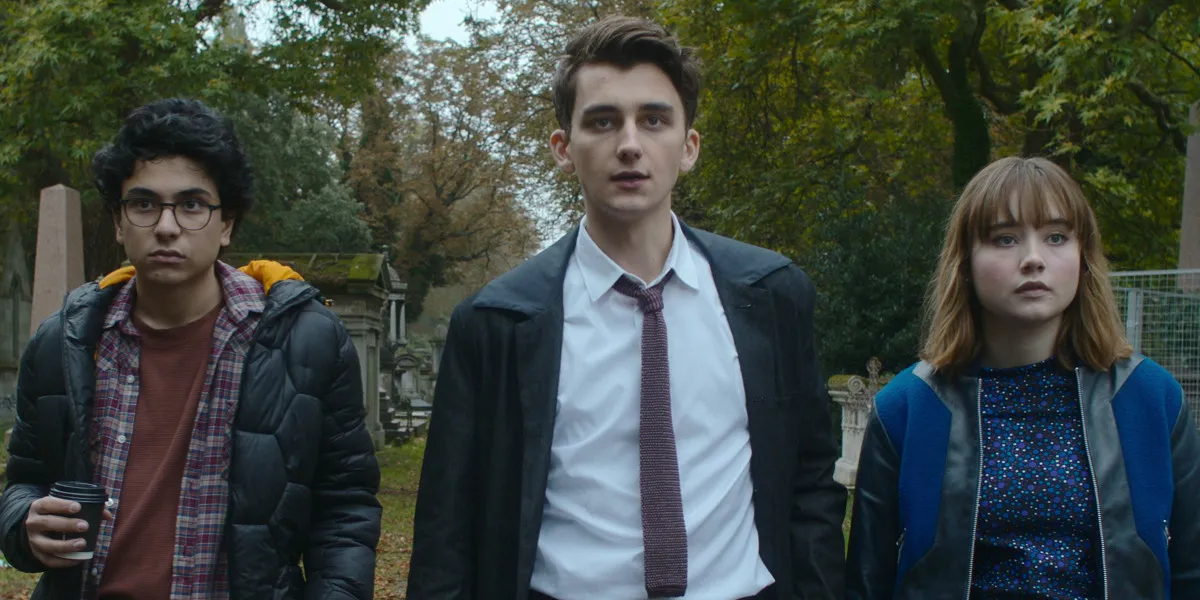Another one bites the dust. Last week, Netflix announced that its latest supernatural YA book adaptation, Lockwood & Co., would be canceled after just one season. I’ve never read the novels, but I enjoyed the show immensely. So much so, in fact, that I’ve added the books by Jonathan Stroud to my rather lengthy TBR list. As such, when I heard the news, I was incredibly disappointed. But the more overwhelming feeling was one of resignation; somewhere in the back of my mind, I had prepared myself for this. I just knew that Netflix would cancel it, no matter how much I actually wanted Lockwood & Co. to be renewed.
How could I not feel that way, when Netflix has become infamous for canceling shows before they’re actually given a chance to grow an audience? Lockwood & Co. is, sadly, just the latest in a long line of Netflix Originals being shut down before they get a chance to truly shine. Netflix’s sacrifices never really seem to be dependent on quality, either; looking at Lockwood & Co.‘s scores on Rotten Tomatoes (92% and 94%), IMDb (7.4), and Metacritic (78 and 9.1), a lack of storytelling ability clearly wasn’t the issue. The same goes for shows like Warrior Nun, which was abruptly canceled after season 2 (and still has a fervent fan campaign trying to revive it), The Bastard Son & The Devil Himself, First Kill, I Am Not Okay With This, The Irregulars, 1899, Archive 81, The Midnight Club, Julie and the Phantoms, Cursed, and many, many more.
Looking at the list above, it sure appears that Netflix’s cancellation policy is used more frequently when it comes to speculative fiction and particularly YA-related speculative fiction. Strange, isn’t it? That one of the most profitable genres should have such trouble finding an audience? To tell you the truth, I don’t think that was an issue. In his cancellation tweet, Stroud noted that Lockwood & Co. reached the top 10 in 80 countries, and held the number one spot in 18 of those countries. That doesn’t sound so bad, right? Especially for a show that was given, at best, minimal promotional support, a fate many of Netflix’s original shows suffer from.
What more could Netflix possibly be looking for? Stranger Things, Bridgerton, and Wednesday numbers for every original production they pump out? Do they not realize that there is simply an overwhelming number of entertainment titles to choose from and that not everyone can watch everything the minute it is released? There has to be a limit to what Netflix expects from a show, and someone, somewhere, needs to realize that certain stories need time to find their audience. But without Netflix’s exact data, and with a consistent stream of vague responses from Netflix when they are asked how they determine what gets renewed and what doesn’t, there’s nothing anyone can really do.
We can tweet at them angrily, plan elaborate fan campaigns, and sometimes, it might make a difference. Netflix saved Lucifer and Manifest, after all, and Sense8 was given a wrap-up feature-length episode, after which Netflix tweeted this now painfully worthless statement:
Things can change! But not nearly as often as they should. With every premature cancellation, Netflix shatters any remaining trust its consumers may have. And while one could argue that speculative shows like Lockwood & Co., Warrior Nun, and 1899 are more at risk of being canceled because their very nature requires a higher budget, Netflix could also simply choose to produce fewer new projects in a given period to allow the ones they already have to grow.
In the current climate, Netflix canceling Lockwood & Co. seems even more baffling. It’s a British production, and as such largely unaffected by the writers’ strike in the U.S. Instead, they’ve renewed Virgin River for season 6, and Ginny & Georgia for seasons 3 and 4, and I’m glad that those who enjoy those shows (I am one of them!) are getting a chance to continue them without the threat of one of Netflix’s trademark unresolved cliffhanger endings. But considering they can’t start working on them any time soon (at least, not without issue), it makes the cancelation of a show like Lockwood & Co. feel all the more egregious.
Personally, if anyone is willing to pick up Lockwood & Co. for another season, I think it should be the BBC. It’s a U.K. production, after all, and the Brits excel at shorter seasons–they pioneered that kind of storytelling long before Netflix ever came along. I don’t know what the future holds, but I’m glad that when it comes to Lockwood & Co., at least, I can find out what happens next by reading the books. Many other Netflix shows don’t come with that option.
(featured image: Netflix)









